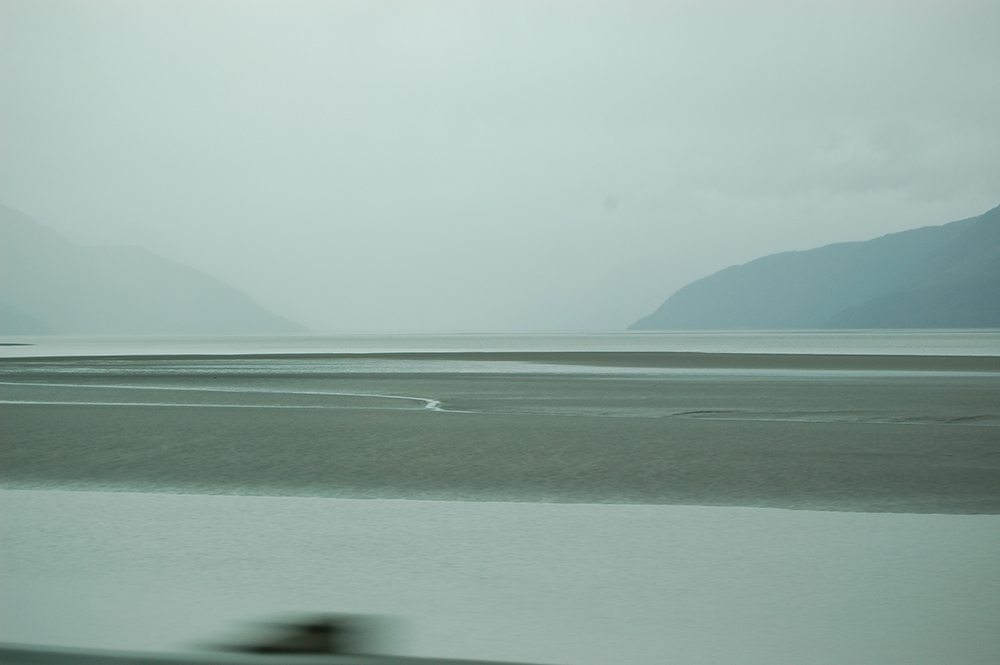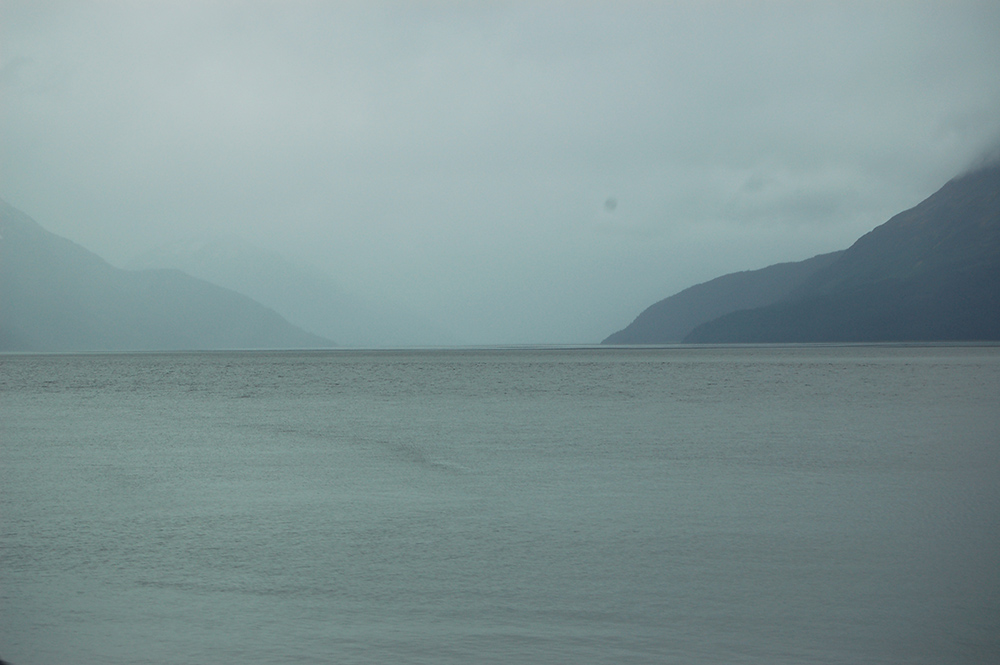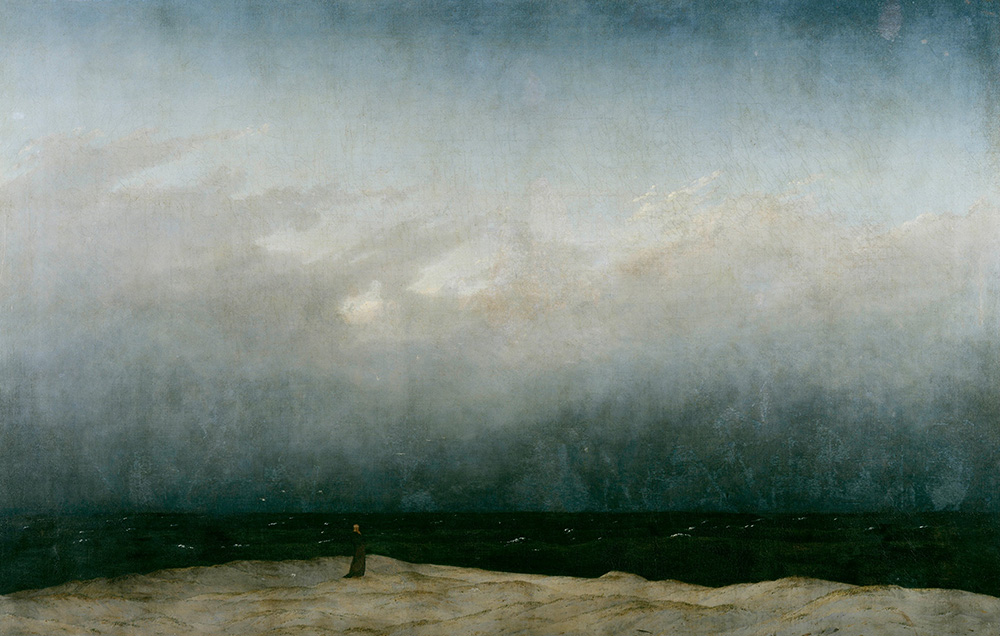melancholische weite | melancholic expanse
irgendwo in alaska | somewhere in alaska
zwei stunden fahren wir nun entlang der sanften küstenfjorde, die landschaft ist menschenleer, die stimmung tageszeitlos. unmassstäbliche weite, die grenzen der elemente verwischen, das meer, die berge, die wolken verschmelzen zu einer in blaues grau getünchten ganzheit. ein bild kommt mir in den sinn. caspar david friedrichs
„der mönch am meer“.
„als ob einem die augenlider weggeschnitten wären“, kommentiert heinrich von kleist die unendliche weite des bildes aus dem jahre 1810. einsamkeit und die stille der eintönigen landschaft als spiegel der seele. das bis dahin wohl leerste bild der romantik als manifestierte ruhe mit melancholischer stimmung, schwermut als sehnsucht. die melancholie, auch als muse der traurigkeit bezeichnet, als zustand von tiefgang, fantasie, kreativität, empfindsamkeit und leidenschaft. aristoteles vermutete, dass jeder redlich denkende mensch melancholiker sein müsse. wie wunderschön melancholie sein kann, erfahren wir bei der nächsten biegung der küstenstrasse, in gewohnter erwartung darauf, dass sich hinter der kehre wohl neues, überraschendes, ungewohntes präsentierten müsse. Wir erfahren eine menschenleere, tageszeitlose weite, eine in blaues grau getünchte ganzheit, in der sich die grenzen der elemente verwischen.
—
melancholic expanse
somewhere in alaska
we drive for two hours along the gentle coastal fjords; the landscape is deserted, the mood daytime. an endless expanse; the contours s of the elements blur; the sea, the mountains and the clouds fuse into a blue-gray whitewashed whole. a painting comes to my mind. caspar david friedrich’s „the monk by the sea.“
„As if one’s eyelids had been cut away,“ Heinrich von Kleist’s description of the infinite expanse of the work from 1810. Solitude and the absolute silence of the monotonous landscape as a mirror of the soul. the most desolate painting of the romantic period to date when it was made, a manifestation of calm with a melancholic mood; melancholy as longing. as the muse of sorrow, as profundity, fantasy, creativity, sensitivity and passion. aristotle believed that every honest-thinking person tended toward melancholy. just how beautiful melancholy could be, we discovered at the next bend of the coastal road, in the usual expectation that beyond the turn something novel, surprising and unfamiliar would appear. before us lay a deserted, expanse: a completeness immersed in a blue-gray light, in which the contours of the elements blurred and were obscured.
- fotos / photos: holger lohrmann




